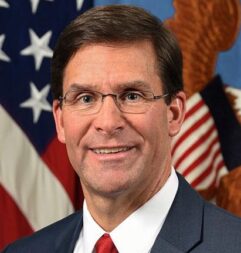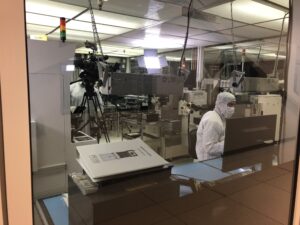Esper is a West Point graduate and former Army lieutenant colonel. During the Trump administration he served as secretary of the Army from November 2017 until June 2019, and as secretary of defense from July 2019 until November 2020. Trump fired him days after the presidential election was called in favor of Joe Biden.
Before joining the Trump administration Esper was vice president of government relations for top defense contractor Raytheon.

He will bring unique perspectives to the company on where the U.S. government market is going, CAES chief technology officer David Young said.
Expanding in the U.S. government market has been a critical part of its growth strategy since CAES became a stand-alone company in March 2020, after private equity firm Advent International bought its parent group for about $5 billion.
CAES, which supplied components for NASA’s Perseverance rover that landed on Mars Feb. 18, said it has secured key contracts across classified space programs since Advent’s investment.
The company expects to benefit from U.S. government efforts to strengthen domestic infrastructure for producing semiconductors, amid a global shortage that has prompted satellite makers to bolster supply chains.
On June 14, CAES announced a partnership to design new types of semiconductors with SkyWater Technology, which has been working with the Department of Defense to create a foundry in the U.S. for building components that can withstand radiation in space.
With demand growing in the U.S. for trusted and secure semiconductors, combined with a global shortage, Young said “it’s an ideal time for us to get ahead of the market and offer this new capability that’s domestically sourced.”
In April, CAES secured an alliance with Switzerland-based additive manufacturing specialist Swissto12, which will bring its 3D-printed satellite RF technology to the U.S. market.
Space News Senior Staff Writer Sandra Erwin contributed to this story from Washington



